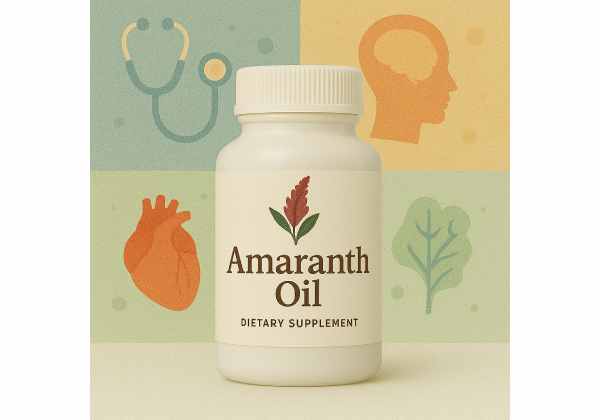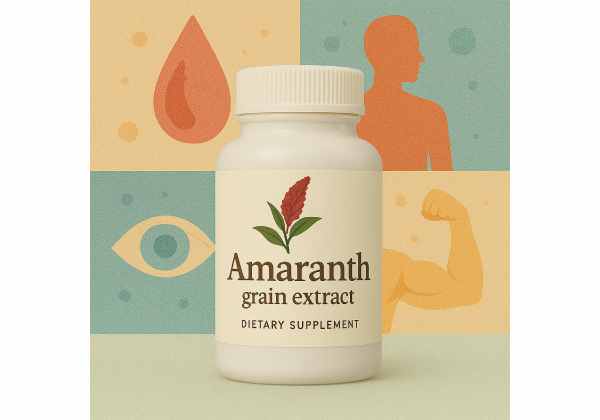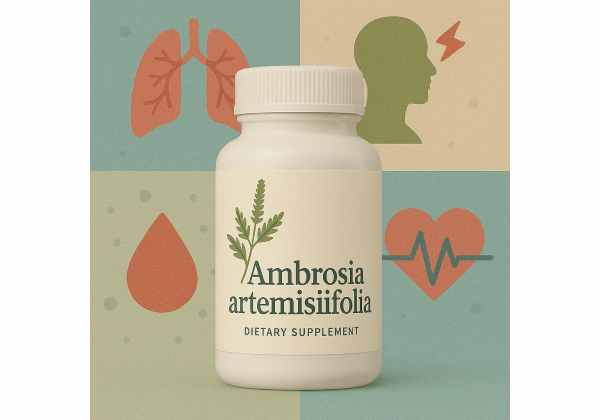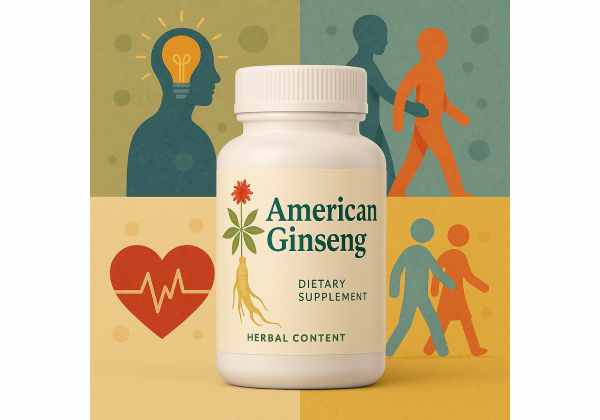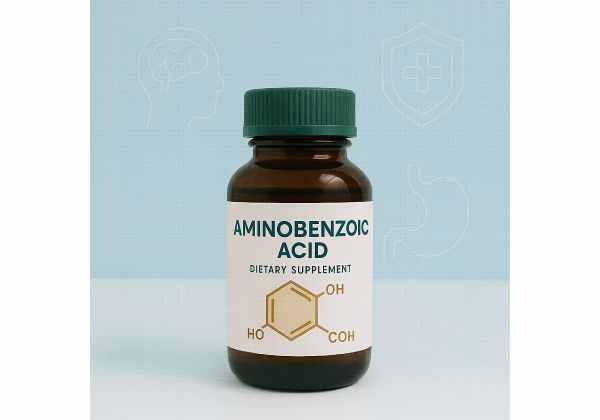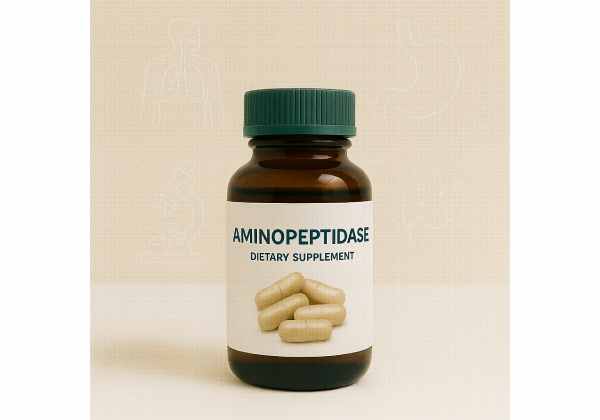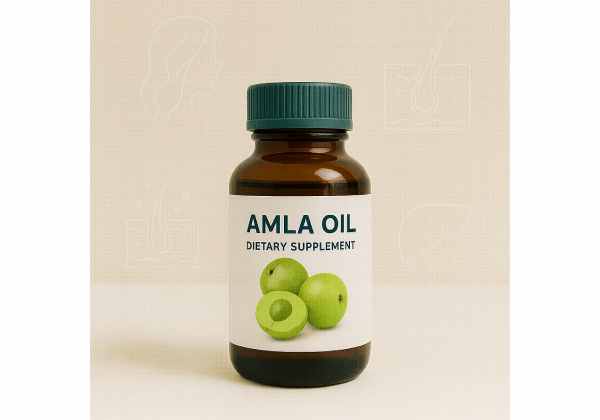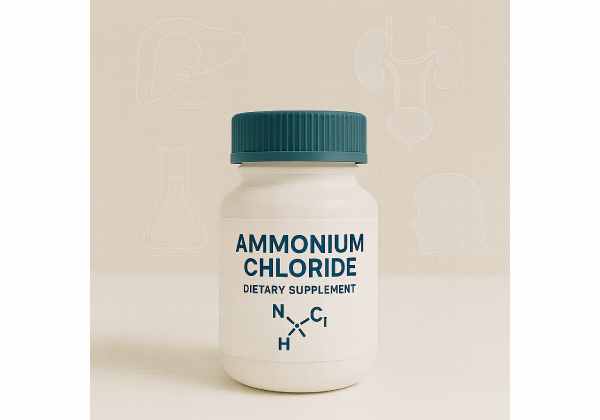Alum: What It Is, Medicinal Benefits, Dosage, and Side Effects
Alum, a centuries-old compound with a distinctive salty, astringent taste, has long been recognized for its diverse medicinal, cosmetic, and household uses. Chemically known as potassium aluminum sulfate, alum appears as colorless crystals or white powder and is found in everything from traditional shaving blocks to water purification tablets and pickling recipes. Today, it’s used for oral health, wound...
Amalaki: Indian Gooseberry Benefits, Dosage, Uses, and Side Effects
Amalaki, also known as Indian Gooseberry or Amla, stands as one of the most revered botanicals in traditional Ayurvedic medicine. Celebrated for its extraordinary vitamin C content, antioxidant capacity, and adaptogenic properties, Amalaki is valued both as a dietary supplement and a functional food. It supports immune health, digestion, vitality, skin radiance, and longevity, earning its place in both...
Amaranth Oil: Benefits for Skin, Heart, and Wellness Explained
Amaranth oil is rapidly gaining recognition in both nutrition and skincare circles, celebrated for its rich squalene content, antioxidant properties, and heart-healthy benefits. Pressed from the tiny seeds of the ancient amaranth plant, this golden oil is renowned for supporting cardiovascular health, nourishing skin, and acting as a natural anti-inflammatory agent. Whether used as a supplement or a topical...
Amaranth protein: Health Effects, How to Use, Safety, and Top Benefits
Amaranth protein is gaining attention as a powerful plant-based nutrition source, prized for its complete amino acid profile, digestibility, and health-supporting properties. Extracted from amaranth seeds—a resilient ancient grain—it stands out as a gluten-free, hypoallergenic option, making it popular among athletes, vegans, and anyone seeking functional nutrition. Rich in protein, fiber, and bioactive compounds, amaranth protein may support muscle...
Amarnath Grain Extract: Science-Backed Health Benefits, Dosage, and Application
Amarnath grain extract, derived from the nutrient-rich seeds of the Amaranthus plant, is rapidly gaining popularity as a modern supplement for holistic wellness. Prized for its complete protein, high mineral content, and potent antioxidant compounds, this extract offers a natural, plant-based way to support heart health, energy, and overall vitality. Whether added to smoothies, shakes, or functional foods, Amarnath...
Amber Extract: Uses, Dosage, Effects, and Safety Considerations
Amber extract—derived from the fossilized resin of ancient trees—has fascinated cultures for centuries, prized for its warm, golden glow and its remarkable healing properties. Today, amber extract is making a comeback in modern wellness as a unique natural supplement. Rich in succinic acid, antioxidants, and trace minerals, it’s used to promote energy, reduce inflammation, support the skin, and even...
Ambrette: How to Use, Health Advantages, Dosage, and Precautions
Ambrette (Abelmoschus moschatus), renowned for its delicate, musky aroma and remarkable therapeutic profile, is emerging as a valued natural supplement in holistic health. Sourced from the seeds of the ambrette plant, this botanical extract offers a wide array of potential benefits—from easing stress and balancing mood to supporting digestion and skin wellness. Its uses span traditional medicine, perfumery, and...
Ambrosia Artemisiifolia: Herbal Benefits, Safe Uses, Dosage, and Side Effects
Ambrosia artemisiifolia, commonly known as common ragweed, is a plant most recognized for its role in seasonal allergies. Yet in herbal medicine traditions, it’s also valued for its potential digestive, antimicrobial, and anti-inflammatory effects. From its historical folk uses to the latest supplement formulations, ambrosia artemisiifolia is gaining attention for both its cautions and benefits. In this in-depth guide,...
Amelanchier: Health Benefits, Supplement Uses, Dosage Guidelines, and Side Effects
Amelanchier, often known as serviceberry or juneberry, is a remarkable plant treasured for its delicious berries and a history of traditional use in North America and Europe. Rich in nutrients, antioxidants, and unique phytochemicals, Amelanchier is gaining popularity as a supplement for cardiovascular, metabolic, and immune support. Beyond their culinary appeal, the berries, leaves, and bark are being researched...
American Adder’s Tongue: Skin Healing Uses, Benefits, and Safe Dosage Guide
American Adder’s Tongue (Ophioglossum vulgatum), a unique fern found in woodlands and meadows, has a long history in herbal and folk traditions. Renowned for its distinctive appearance and medicinal potential, this plant has intrigued both healers and botanists for centuries. American Adder’s Tongue is valued for its purported abilities to promote wound healing, soothe inflammation, and support joint comfort....
American Bittersweet: Comprehensive Guide to Benefits, Safety, and Dosage Information
American Bittersweet, a climbing woody vine native to North America, has a rich history in traditional herbal medicine and landscaping. Renowned for its striking orange berries and unique medicinal properties, this plant has been used for generations to support a range of wellness needs. Today, American Bittersweet is gaining renewed attention for its potential health benefits, including anti-inflammatory effects...
American Chestnut: Nutrition Facts, Supplement Benefits, Uses, and Risks
The American Chestnut tree, once a towering icon of North American forests, is now reclaiming attention not only for its ecological and cultural history but also for its unique nutritional and medicinal potential. Revered for its sweet, edible nuts and traditional uses in natural wellness, the American Chestnut has long been valued for supporting heart health, digestion, and immunity....
American Dogwood: Natural Supplement Uses, Dosage, and Adverse Effects Explained
American Dogwood is a beautiful native tree celebrated not only for its ornamental appeal but also for its traditional use in natural health practices. Known botanically as Cornus florida, this tree has long been valued in folk medicine for its bark, which was historically used as a remedy for fevers, digestive issues, and inflammatory conditions. Today, both herbalists and...
American Elder: Evidence-Based Benefits, Herbal Uses, Dosage, and Warnings
The American Elder, or Sambucus canadensis, is a treasured native shrub known for its clusters of creamy flowers and rich, dark berries. For centuries, indigenous communities and settlers have turned to American Elder as a natural remedy for colds, flu, and immune support. Its berries are celebrated for their antioxidant content and ability to promote wellness, especially during seasonal...
American Ginseng: Adaptogen Benefits, Cognitive Uses, Dosage, and Side Effects
American Ginseng (Panax quinquefolius) is one of North America’s most celebrated adaptogenic herbs, prized for its subtle yet powerful effects on energy, immunity, and stress resilience. Used for centuries by Native American tribes and later adopted by Western herbal medicine, American Ginseng has gained global popularity for its ability to support cognitive performance, balance blood sugar, and promote overall...
American Hellebore: Alkaloids, Medicinal History, Toxic Effects, and Identification
American Hellebore (Veratrum viride), also known as green false hellebore or Indian poke, is a striking native plant with a long and complex relationship to traditional medicine. Renowned for its powerful bioactive compounds, this plant has been both respected and feared in herbal traditions for its potent physiological effects. While it once featured in folk remedies for hypertension and...
American Ivy: Supplement Risks, Folk Medicine, and Scientific Insights
American Ivy, commonly known as Virginia Creeper (Parthenocissus quinquefolia), is a native North American vine often confused with true ivy but possessing its own unique properties and folklore. While it is most recognized for its ornamental value and vibrant red autumn leaves, some traditional herbal practices have explored its medicinal applications, especially among Indigenous peoples. In recent times, curiosity...
American Mistletoe: Benefits, Dangers, and Clinical Insights for Users
American Mistletoe (Phoradendron leucarpum), a native relative of the European mistletoe, is a well-known plant with deep cultural, medicinal, and ecological significance across North America. While often associated with winter holiday traditions, American Mistletoe has also featured in Native American remedies and folk herbalism for centuries. Today, interest is resurging in its bioactive compounds and potential health effects, though...
American Pawpaw Fruit: Evidence-Based Benefits, Best Uses, and Dosage Guide
The American pawpaw, a unique fruit native to North America, is gaining recognition not only for its intriguing tropical flavor but also for its potential health benefits. Traditionally enjoyed by indigenous peoples and early settlers, pawpaw is now being rediscovered for its rich nutritional profile and possible medicinal uses. From its potent antioxidants and vitamins to its applications in...
American Spikenard: Benefits, Uses, Dosage, and Side Effects Explained
The American spikenard (Aralia racemosa) is a native North American herb cherished for centuries in traditional herbal medicine. Known for its aromatic roots and versatile uses, this woodland plant has been valued by Indigenous peoples and herbalists for a range of wellness applications—from respiratory relief to digestive support. Today, American spikenard is reemerging in the world of natural health,...
Amimi visnaga: Benefits, Uses, Dosage, and Side Effects Explained
Amimi visnaga, also known as Ammi visnaga or khella, is an ancient Mediterranean herb used for centuries in traditional herbal medicine. Renowned for its unique active compounds, khellin and visnagin, Amimi visnaga is commonly sought for natural relief of urinary and respiratory complaints, as well as cardiovascular wellness. Modern research continues to explore its antispasmodic, vasodilatory, and antioxidant properties....
Aminoacetic acid (Glycine): Benefits, Practical Uses, Safe Dosage, and Side Effects
Aminoacetic acid, better known as glycine, is the simplest amino acid yet one of the most versatile and essential for human health. Naturally produced by the body and abundant in high-protein foods, aminoacetic acid plays critical roles in the creation of proteins, enzymes, collagen, and neurotransmitters. From promoting restful sleep and healthy joints to supporting the nervous system and...
Aminobenzoic acid: Health Benefits, Supplement Uses, Dosage, and Side Effects
Aminobenzoic acid, also known as para-aminobenzoic acid (PABA), is a unique organic compound best known for its historical use in sunscreen and its debated role as a B-vitamin-like substance. Found naturally in grains, eggs, milk, and some vegetables, aminobenzoic acid is involved in folate synthesis in bacteria and has been studied for a variety of human health applications, from...
Aminogen: Health Benefits, Protein Digestion, Dosage, and Side Effects
Aminogen has become a buzzword in the world of sports nutrition and digestive health, often seen in protein powders and fitness supplements. This patented blend of digestive protease enzymes is designed to enhance protein absorption, reduce bloating, and support muscle recovery. Aminogen is not a single nutrient but a carefully formulated enzyme complex that helps break down dietary proteins...
Aminopeptidase: Comprehensive Guide to Benefits, Enzyme Science, and Supplementation
Aminopeptidase is a key digestive enzyme that plays a central role in breaking down proteins into amino acids, supporting not only digestion but also various metabolic and immune processes. Found in both the body and as a supplement, aminopeptidase has drawn interest for its impact on gut health, protein absorption, inflammation, and certain neurological and autoimmune conditions. Whether you’re...
Amla Oil: Hair Growth Benefits, How to Use, Dosage, and Side Effects
Amla oil, derived from the Indian gooseberry (Phyllanthus emblica), has been treasured for centuries in Ayurvedic and natural beauty traditions. Renowned for its potent antioxidants, vitamins, and nourishing fatty acids, amla oil is celebrated for supporting hair growth, strengthening roots, soothing the scalp, and imparting a radiant shine. Beyond hair care, it’s also used for skin health and overall...
Ammonium chloride: Medical Uses, Health Benefits, Dosage, and Side Effects
Ammonium chloride is a versatile compound with a long history in both medicine and industry. Used in cough remedies, as a food additive, and even in electrolyte solutions, ammonium chloride provides a range of health benefits when used appropriately. It’s known for helping to relieve cough, balance body fluids, and support certain metabolic functions. However, as with all supplements...
Amniotic Fluid Extract: Joint, Skin, and Healing Benefits with Side Effects Detailed
Amniotic fluid extract has captured growing attention in the world of supplements and regenerative therapies, offering a unique blend of growth factors, proteins, and nutrients derived from the protective fluid surrounding a developing baby. With origins in medical and cosmetic applications, this extract is now used for supporting joint health, wound healing, and skin rejuvenation. As research continues, more...
Amomum Cardamomum: Black Cardamom Health Advantages, Applications, and Dosage
Amomum Cardamomum, more commonly known as black cardamom or Bengal cardamom, is a prized spice with deep roots in traditional herbal medicine and culinary arts. Not only is it treasured for its robust flavor, but it’s also valued for a spectrum of health benefits—from supporting digestion and respiratory wellness to providing antioxidants and metabolic boosts. Increasingly, supplements and extracts...
Amor seco: Herbal Medicine Insights—Benefits, Dosage, and Risks
Amor seco, scientifically known as Desmodium adscendens, is a treasured herb in traditional medicine, especially across South America and West Africa. Celebrated for its natural ability to support respiratory health, ease inflammation, and promote liver wellness, amor seco is gaining modern attention as a potent botanical supplement. Beyond its folk uses, current research is exploring its antioxidant and muscle-relaxant...




